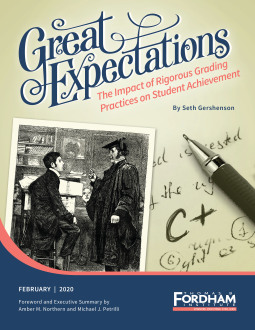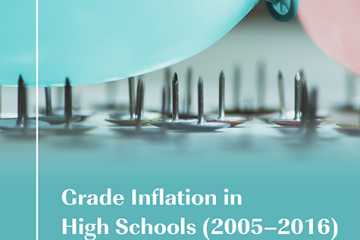We know from previous survey research that teachers who hold high expectations for all of their students significantly increase the odds that those young people will go on to complete high school and college. One indicator of teachers’ expectations is their approach to grading—specifically, whether they subject students to more or less rigorous grading practices. Unfortunately, “grade inflation” is pervasive in U.S. high schools, as evidenced by rising GPAs even as SAT scores and other measures of academic performance have held stable or fallen. The result is that a “good” grade is no longer a clear marker of knowledge and skills.
Authored by American University’s Seth Gershenson, Great Expectations: The Impact of Rigorous Grading Practices on Student Achievement examines to what extent teachers’ grading standards affect student success. Specifically, this report investigates the following questions:
- How do the grading standards of an Algebra I teacher affect content mastery, as measured by student performance on the end-of-course Algebra I exam?
- Do the grading standards of an Algebra I teacher impact students’ longer-term performance in subsequent math courses like geometry and Algebra II, and their likelihood of graduating from high school?
- Does the impact of an Algebra I teacher’s grading standards vary by student, school, or teacher characteristics? Likewise, what school and teacher characteristics predict teachers’ grading standards?
To address these questions, Gershenson analyzed administrative data for all eighth and ninth grade Algebra I students in North Carolina’s public schools from 2006 to 2016.
The analysis yielded six major findings. Among them: Students of all racial/ethnic groups learn more from teachers with high grading standards, and these standards tend to be higher in schools serving more advantaged students. Moreover, the impact of rigorous grading practices can improve student performance in subsequent math classes up to two years later.



